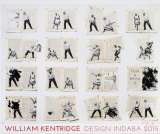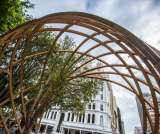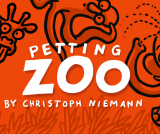Design Indaba commemorated Mandela Day in Monwabisi Park, Khayelitsha, where it joined the Violence Prevention Through Urban Upgrading (VPUU) and Sikhula Sonke teams to launch a new bus that aims to make a difference to residents' lives.
The bus will be a communication and activation vehicle for social, learning and recreational programmes in the informal settlements of Monwabisi Park, Lotus Park in Gugulethu and the Heights in Lavender Hill. It was provided to VPUU by the Library and Information Services Department of the City of Cape Town, which previously used it as a mobile library. VPUU has upgraded the bus to become a dynamic icon that can move between the different areas as an extension of its “active boxes” concept (multifunctional spaces that act as a community centre, information point, safe point and service point for the provision of social, economic and institutional services).
Social enterprise See-Saw-Do decorated the exterior with a brightly coloured illustration that will enable the bus to stand out from a far distance as a marketing tool within the community. The interior was revamped with a lick of paint, new furniture, posters and flooring. Design Indaba donated books, games and equipment for early childhood development.
The bus travelled to several “emthonjenis” (a Xhosa word meaning “place where we fetch water”) where children enjoyed games and story time on the bus.
According to VPUU community facilitator Zandile Mahlasela the “emthonjenis” refers to the communal tap areas in the settlement. VPUU upgrades these meeting points by raising the pipe stand, adding another tap and building a concrete table for buckets and cans to stand on while it gets filled. They also pave the area around the tap and add seating, a tree and usually play equipment for children.
“In the rural areas where the women go to fetch water, their children go with and play,” she says. “So we actually employed this rural concept in this urbanised area to create safe and vibrant spaces for children.”
VPUU and along with their early childhood development partner, Sikhula Sonke use these “emthonjenis” as informal, outdoor classroom to reach children whose parents can’t afford to send them to a crèche.
Architect and urban design assistant Stephanie Potgieter emphasises the role that early childhood development plays in preparing children for school: “It really starts with our children,” she says Stephanie Potgieter. “If we can get children a basic level of education when they are still below six, we get them ready for school and imprint that idea that you have to go to school – it really roles out from there.”










